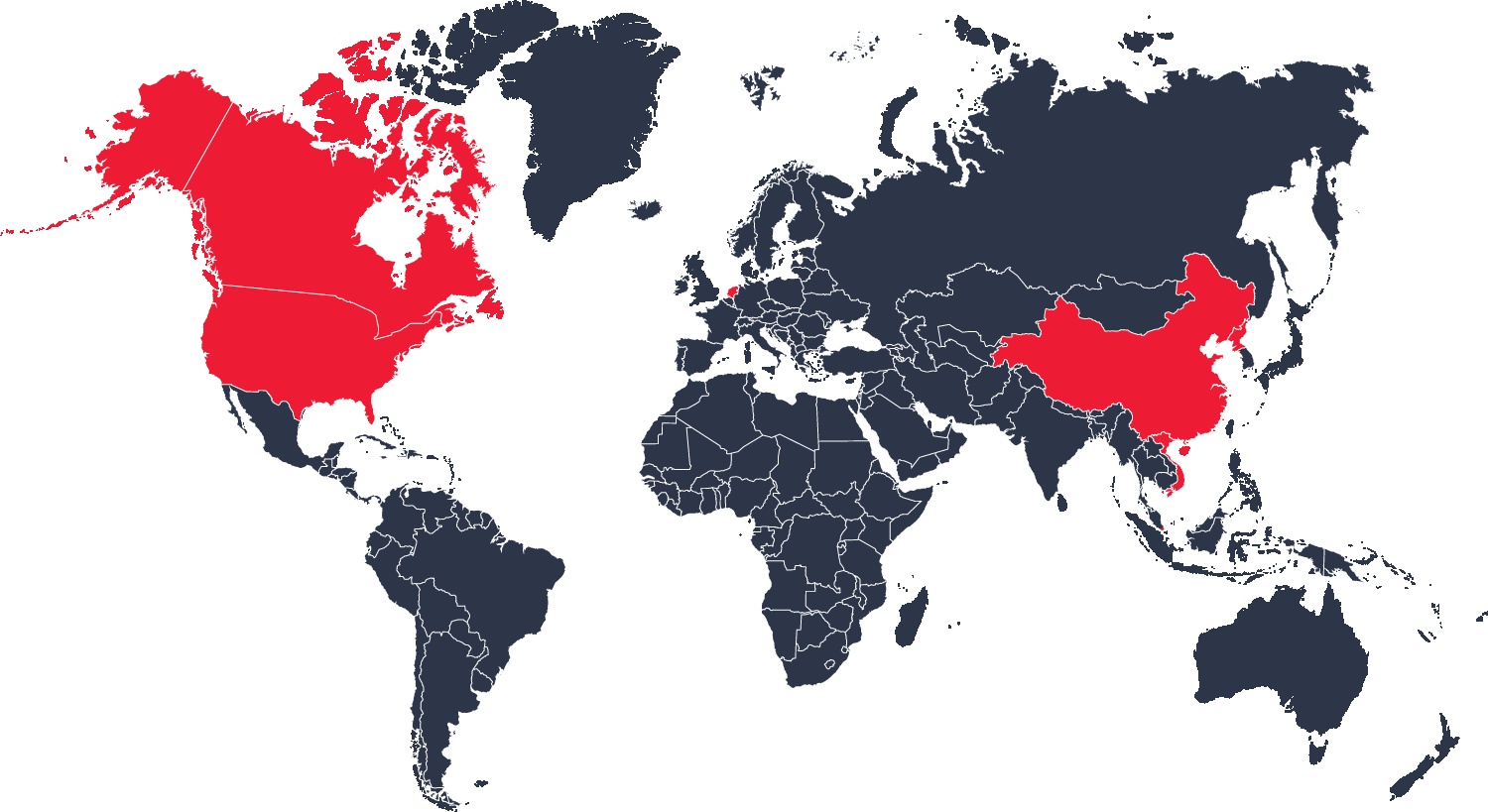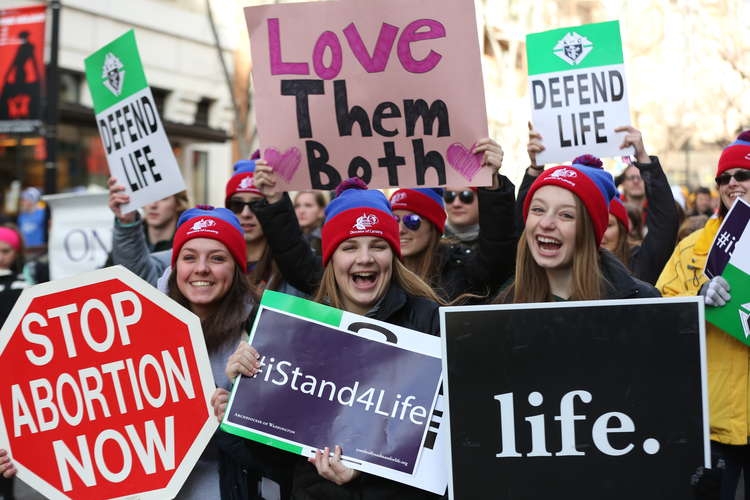THE HISTORY OF ROE V. WADE
The Cost of a Single Decision
Roe v. Wade was the deadliest court decision in recent memory. In 1973, seven men signed the death sentence for millions of American infants. Who knew that decades later, 62 million lives would be the cost? Imagine the doctors that could have found cures for cancer, or the inventors, the artists, the world-changers, the homemakers, the moms, the dads, the countless lives that could have impacted our society for the better — all legally murdered.
The United States is one of just seven countries in the world that allows abortions till birth.

Canada, China, Netherlands, North Korea, Singapore, the United States and Vietnam
It All Began with Roe V. Wade
The case began with Jane Roe, whose real name was Norma McCorvey. She was on her third pregnancy and wanted her daughter aborted. The only problem — it wasn’t legal in her state of Texas. So, she sued a Texas state official, Henry Wade, claiming that she had a constitutional right to abortion.
Months later, the case would work its way to the United States Supreme Court.
It was a moment that would alter decades to come.
On January 22, 1973, the Court issued its opinion. According to those Justices, women have the constitutional “right to privacy,” which — according to them — means women have a “right” to an abortion. To be sure, this “right” was not absolute. States had a compelling interest in protecting the health and well-being of the mother.
Nonetheless, the effect of Roe was unmistakable. Abortion was made legal across the nation, even in places where it had not been legal.

Norma McCorvey, a.k.a. Jane Roe (on left), and her lawyer, Gloria Allred, on the steps of the Supreme Court, 1989. Credit: Lorie Shaull
The world has drastically changed since 1973, and so have technology and scientific advancements. We have more evidence. We have ultrasound machines showing minute details of a baby’s development. We know when life begins. In Roe, the Supreme Court said, “We need not resolve the difficult question of when life begins.” But could they say that today?

Science clearly tells us…
- At conception, a baby’s gender, ethnicity, hair color, eye color, and other traits are already determined.
- At day 7, a baby is implanted in their mother’s uterus.
- At 10 weeks, a baby can suck their thumb, swallow, grasp an object, touch their face, sigh, and stretch out in a mother’s womb.
- At week 20, a baby can feel pain.
- At week 27, a baby can recognize the voices of their parents, their eyes can respond to light, and their sense of smell has developed already.

The Answer Is Clear: Life Begins At Conception.
Every life is precious, yet so many have been lost to abortion.
And children’s lives aren’t the only losses from Roe.
We’ve seen the horrors of abortion at every turn. We’ve seen it in the pain and death of women who use chemical abortion pills. We’ve reeled as we learned how serial killer Kermit Gosnell slaughtered babies, and even a woman mid-abortion. We’ve seen videos of Planned Parenthood selling the baby parts of aborted children as if they were commodities to trade. We’ve learned of the most grotesque parts of the abortion industry.
This is THE human rights issue of our day. And the nation is beginning to realize it.
THE PRO-LIFE MOVEMENT IS UNSTOPPABLE
We’ve Accomplished Much
Over the last 49 years, the pro-life movement has fought tirelessly to defend the unborn. We have marched the streets of Washington; we have unveiled the evils of abortion; we have passed countless bills to protect babies and their moms; we have won pro-life victories in court.
Now, the next generation has risen up and said, “enough is enough. We are a pro-life generation.”
Millennials and Gen Zers are more pro-life than generations before them. Once they learn about the realities of abortion, these young Americans tend to reject laws that allow abortions for any reason up to birth. Almost 6 out of 10 Millennials and Gen-Zers specifically opposed the two most pro-abortion Supreme Court rulings of our nation’s history: Roe v. Wade and Doe v. Bolton.
Pregnancy centers and support for women and their babies have become a critical aspect of the pro-life movement since Roe. We not only care for the baby inside the womb, we care about the baby after birth and the mother. And, American Christians in particular are more than twice as likely as the general population to adopt and foster children.
NARAL, a pro-abortion organization, said this year alone, there have been over 90 abortion restrictions enacted at the state level, making 2021 the “the worst year for abortion rights since Roe was decided.” This is great news for the pro-life movement.

There Is Still More To Be Done
We continue to fight for the right of every child to be born. We will stop at nothing until we see abortion annihilated from our society.
Now that Roe has been overturned that doesn’t mean America is automatically pro-life. The issue will be far from decided, as overturning Roe would most likely return the issue to the states.
And so, we must answer this question: what comes after Roe?
DISCOVER A WORLD AFTER ROE
SOURCES:
- https://www.washingtonpost.com/news/fact-checker/wp/2017/10/09/is-the-united-states-one-of-seven-countries-that-allow-elective-abortions-after-20-weeks-of-pregnancy/
- https://babyolivia.liveaction.org/
- https://lozierinstitute.org/fact-sheet-science-of-fetal-pain/
- https://www.studentsforlifeaction.org/students-for-life-of-americas-institute-for-pro-life-advancement-releases-new-poll-detailing-pro-life-support-and-the-nuanced-abortion-views-of-millennials-and-gen-z/
- https://www.pewresearch.org/fact-tank/2021/05/06/about-six-in-ten-americans-say-abortion-should-be-legal-in-all-or-most-cases/
- https://www.realclearpolitics.com/articles/2021/01/28/poll_millennials_gen_z_have_nuanced_perspective_on_abortion__145134.html
- https://www.heartbeatinternational.org/pdf/History_of_Centers.pdf
- https://www.barna.com/research/5-things-you-need-to-know-about-adoption/
